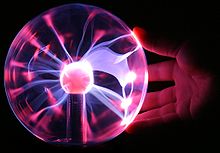In my past few blogs I discussed nutrients as the "N" in the context of the "N-E-W" paradigm for wastewater treatment (rebranded as "water resource recovery facilities" but it's taking me time to adjust so bear with me, please!). In this blog we turn our attention to Energy (that's a capital "E"!)
Energy is currently the hottest topic in our triumvirate of resources that we can recover at water resource recovery facilities (there, I said it) aka poop plants (sorry, couldn't resist!). I think this is due to the fact that we pay our electricity and gas bills and so we're conscious of the cost of energy. Of all resources, we relate to energy the most because we can link it back to the dollars and cents used to pay for it. Another way of saying the same thing is that ecologically minded people can think of energy recovery in terms of reducing carbon footprint and at the same time the more financially motived people can see the possibility for cost savings. In sustainability terms, this is a real "win-win" ( or "win-win-win" if we can rope in social benefits somehow in the triple bottom line) which overcomes the need to consider trade-offs between reducing environmental impacts and the financial cost. I think this is OK, and certainly makes it easier to make the decision to implement an energy project at a facility, but we need to be careful not to expect the "win-win" for all sustainability projects and we need to set expectations that not all energy and sustainability projects will have a short-term financial pay back. If it does, great, but that's not the only reason to do the project.
In thinking about energy neutrality, which is a goal for WERF and others, we need to think about it from both energy use (the "demand" side) and energy as a resource (the "supply side"). It makes no sense to produce lots of electricity on site and at the same time be running inefficient pumps and blowers. We really do need to think about energy as a whole. That's the focus for a WERF research project I'm helping on right now called "Energy Balance and Reduction Opportunities, Case Studies of Energy-Neutral Wastewater Facilities and Triple Bottom Line (TBL) Research Planning Support" (a bit of a mouthful but descriptive).
I encourage everyone to take a look at what WERF is doing in Energy recovery as well as other organizations. Feel free to post a reply to this blog if you know of other noteworthy activities in energy recovery for wastewater treatment plants... I mean water resource recovery facilities!


No comments:
Post a Comment